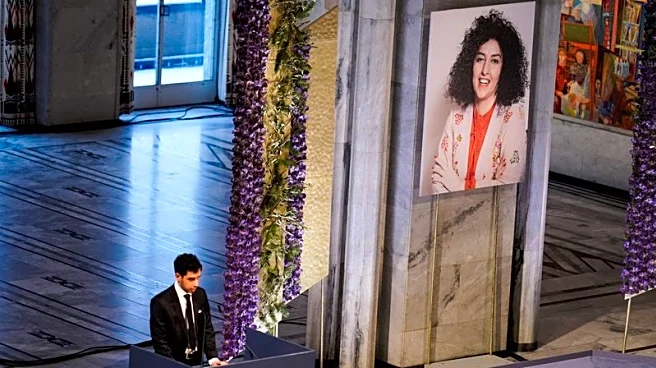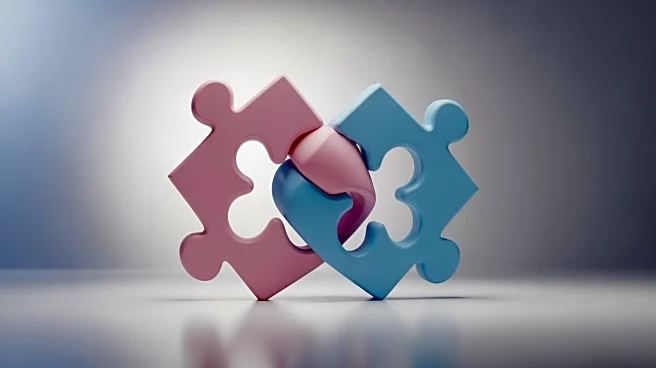What is the story about?
What's Happening?
Israel is experiencing a complex emotional landscape as it prepares for the return of hostages from Gaza. The situation is marked by both grief and joy, as families anticipate the reunion with loved ones, some of whom may have perished. Rachel Goldberg-Polin encapsulated the sentiment by stating, 'There's a time to weep and a time to laugh, and we have to do both right now.' The return of hostages is part of a broader truce deal involving the release of prisoners, including those convicted of serious crimes. This development comes amid ongoing tensions and violence in the region, with Israel navigating the delicate balance between celebrating the return of its citizens and mourning those lost.
Why It's Important?
The return of hostages is a significant event in the context of the Israeli-Palestinian conflict, highlighting the human cost of ongoing hostilities. It underscores the challenges faced by governments in negotiating peace and the emotional toll on families affected by the conflict. The situation may influence public opinion and policy decisions in Israel, potentially impacting future negotiations and peace efforts. The emotional complexity of the event reflects the broader struggle for reconciliation and the difficulty in achieving lasting peace in the region.
What's Next?
As hostages return, Israel will likely face increased pressure to address the underlying causes of the conflict and work towards a sustainable resolution. The government may need to navigate public sentiment and international scrutiny while balancing security concerns and humanitarian obligations. Future diplomatic efforts may focus on preventing further escalations and fostering dialogue between conflicting parties. The return of hostages could serve as a catalyst for renewed peace talks, although the path forward remains uncertain.
Beyond the Headlines
The emotional impact of the hostages' return highlights the broader cultural and psychological effects of prolonged conflict on Israeli society. It raises questions about the long-term implications for families and communities affected by violence and the role of collective memory in shaping national identity. The event also prompts ethical considerations regarding the treatment of prisoners and the complexities of negotiating with groups involved in terrorism.
















